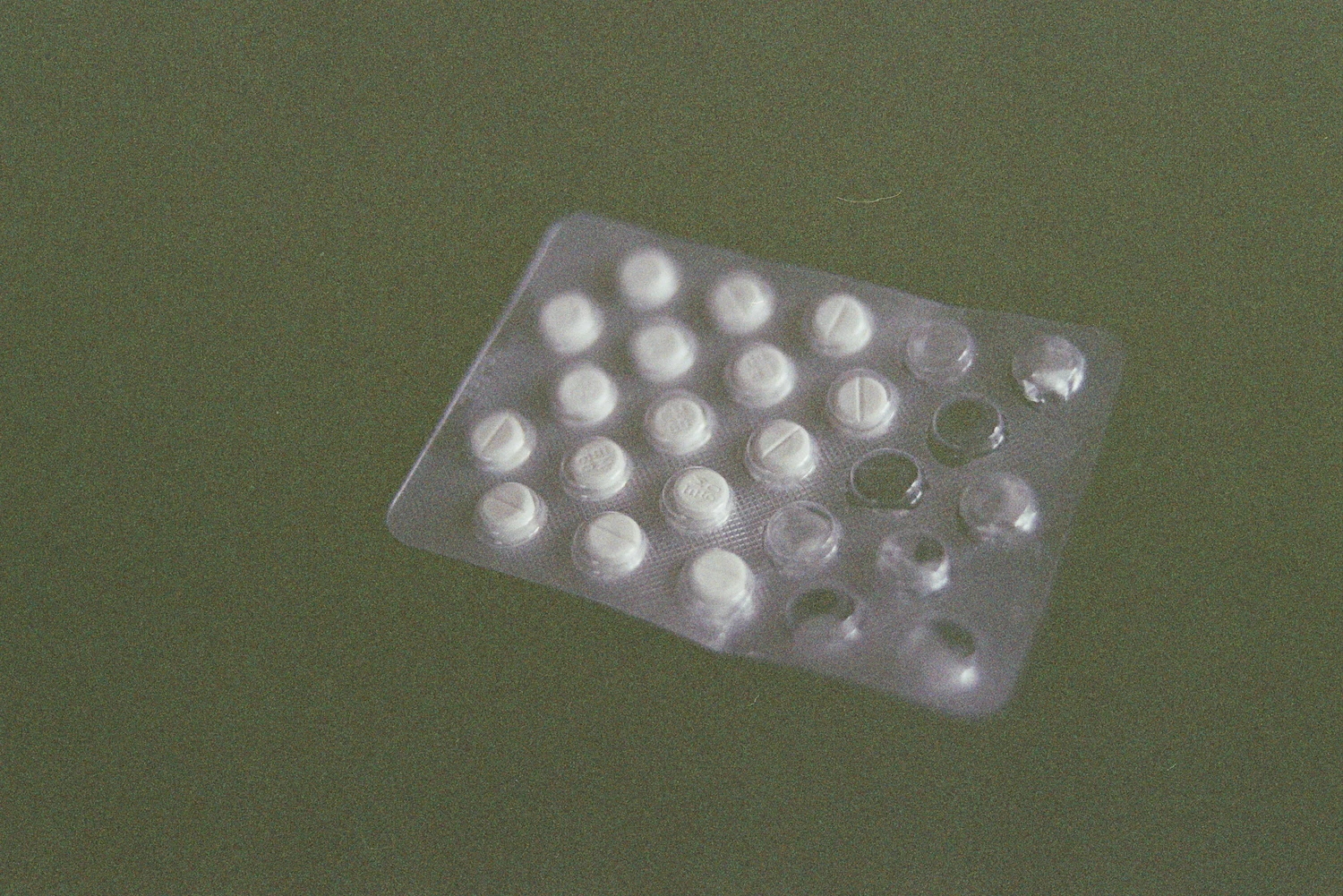Are Muscle Relaxers Addictive? What to Know About Misuse

- Carisoprodol and diazepam are the muscle relaxers with the highest risk of addiction.
- Even lower-risk options like baclofen or cyclobenzaprine can cause dependence with long-term use.
- Most muscle relaxers work by depressing the central nervous system (CNS), which can lead to misuse.
Some muscle relaxers can be habit-forming, especially in high doses or extended periods. While not all are classified as addictive, certain types—like carisoprodol—carry a higher risk of misuse and dependence.
Muscle relaxers are frequently prescribed to relieve pain and muscle spasms, but not all of them are without risk.
While some are considered safer for short-term use, others can lead to physical dependence or even addiction. [1]
Understanding which types carry the highest risk can help you use these medications safely and avoid unintended consequences.
What Are Muscle Relaxers and How Do They Work?
Muscle relaxers are a group of prescription drugs that help reduce muscle spasms, stiffness, or pain.
They are often prescribed for conditions like back pain and injuries, fibromyalgia, or tension-related headaches.
These drugs act as central nervous system depressants, slowing down brain activity or activity in the spinal cord to help muscles relax. [2]
There are two main types of these drugs:
- Antispasmodics: These target the central nervous system to reduce involuntary muscle spasms. Common examples include cyclobenzaprine (Flexeril), carisoprodol (Soma), and metaxalone (Skelaxin). [3]
- Antispastics: These act more directly on the spinal cord or skeletal muscles and are often used to treat neurological conditions like multiple sclerosis. They are sometimes also referred to as skeletal muscle relaxants. Examples include baclofen (Lioresal and Gablofen) and tizanidine (Zanaflex). [4]
While effective for short-term relief, muscle relaxers vary widely in how they work and in their potential for misuse or drug addiction.
Which Muscle Relaxers Have the Highest Risk of Addiction?
Not all muscle relaxers carry the same risk when it comes to dependence. Some have a significantly higher potential for abuse due to how they affect the brain.
- Carisoprodol (Soma): Known for its high abuse potential, this is a Schedule IV controlled substance. It can cause sedative or euphoric effects, especially when combined with other depressants. [5]
- Diazepam (Valium): Though technically a benzodiazepine, diazepam is sometimes prescribed as a muscle relaxer. It carries a strong risk of dependence due to its calming, sedating effects. [6]
- Cyclobenzaprine: Considered lower risk than the options above, but still misused in some cases for its sedative properties. [7]
- Baclofen, Tizanidine, Methocarbamol: These medications generally have a lower risk of addiction, but long-term use can still lead to dependence and withdrawal symptoms if stopped abruptly.
Muscle Relaxer Abuse and Addiction Risk Comparison
| Medication | Addiction Risk | Controlled Substance? | Common Use |
| Carisoprodol (Soma) | High | Yes (Schedule IV) | Acute musculoskeletal pain |
| Diazepam (Valium) | High | Yes (Schedule IV) | Muscle spasms, anxiety, seizures |
| Cyclobenzaprine | Moderate | No | Short-term muscle spasm relief |
| Baclofen | Low–Moderate | No | Muscle spasticity, MS |
| Tizanidine | Low–Moderate | No | Muscle spasticity, neurological conditions |
| Methocarbamol | Low | No | Acute muscle pain and tension |
Understanding which medications carry higher risks can help you make informed decisions about pain and spasm management, especially when using these drugs beyond a few weeks.
Addiction vs. Dependence vs. Tolerance: What’s the Difference?
When talking about muscle relaxers and their risks, it’s important to understand the differences between addiction, dependence, and tolerance—terms that are often used interchangeably but mean very different things in a medical context. [8]
Addiction is when someone keeps using a drug even though it’s hurting them. They might feel strong cravings, lose control over how much they take, and keep using even when it causes problems at work, home, or in their relationships.
Dependence is when the body gets used to a drug and starts to rely on it. If the person stops taking it suddenly, they might feel sick or uncomfortable. This is called withdrawal.
For example, someone taking a muscle relaxer every day for a few weeks might get headaches, muscle pain, or trouble sleeping if they stop too quickly.
That’s dependence—but it’s not the same as addiction.
Tolerance happens when a drug stops working as well as it used to. The person might need to take more to feel the same effects. That can be risky if they raise the dose without talking to a doctor first.
It’s possible—and common—for someone to develop dependence or tolerance without being addicted. However, these conditions can increase the risk of misuse if not properly monitored.
Red flags for addiction or problematic use include: [9]
- Taking higher doses than prescribed
- Using the medication for any reason other than pain relief (e.g., to relax or feel sedated)
- Feeling unable to cut back without distress
- Experiencing cravings or compulsive thoughts about the medication
- Mixing muscle relaxers with alcohol or any other drugs to intensify effects
Understanding where you might fall on this spectrum is key to staying safe and using muscle relaxants responsibly.
How Long Can You Safely Take Muscle Relaxers?
Most muscle relaxers are for short-term use, typically no more than two to three weeks. [10]
They’re often prescribed for acute conditions like back spasms, post-injury recovery, or temporary flare-ups of chronic pain.
Using these medications beyond that short window increases the risk of developing a tolerance or dependence. Other side effects of muscle relaxers can include:
- Extreme drowsiness or mental fog
- Dizziness or poor coordination
- Rebound pain or muscle tension when stopping suddenly
- Withdrawal symptoms like anxiety, agitation, or insomnia
- Decreased effectiveness over time, leading to dose escalation
Some people need to take muscle relaxers for longer than a few weeks, especially if they have a long-term condition. However, a treatment plan should always be done under a doctor’s care.
Seeing your doctor regularly is important because they can:
- Check if the medicine is still helping
- Change the dose or try a different one if needed
- Help you slowly stop the medication to avoid withdrawal
- Talk with you about other options like stretching, physical therapy, or relaxation techniques that don’t involve medication.
Staying in touch with your provider helps keep treatment safe and effective over time.
If you’ve been on muscle relaxers for more than a few weeks, don’t stop abruptly—especially if you’re taking medications like baclofen or carisoprodol. Muscle relaxants can cause withdrawal symptoms, and stopping suddenly can sometimes be dangerous. [11]
Work with your doctor to create a detox and tapering plan and explore other options for managing muscle pain safely.
Signs of Muscle Relaxer Misuse or Addiction
While many people take muscle relaxers responsibly, misuse can happen, sometimes without realizing it. [12]
Recognizing any of the warning signs early can help prevent more serious consequences.
Common side effects and signs of misuse or addiction you could see in yourself or a loved one include:
- Taking more than what you’ve been prescribed, or using the medication more often than directed
- Using to feel sedated, numb, or high rather than for muscle pain relief
- Mixing with alcohol, opioids, or another depressant increases the risk of overdose
- Experiencing withdrawal symptoms like anxiety, agitation, or body aches when trying to stop
If you or someone you know is showing these physical or mental health signs, it’s important to talk to a medical professional. There are safe ways to taper off muscle relaxers and get support for managing both physical pain and any underlying dependence.
You may find that inpatient or outpatient treatment programs are a good option for your needs as well.
What to Do If You’re Concerned About Dependence
If you think you may be developing a dependence on a prescription muscle relaxer, the first step is to talk to your prescribing doctor for professional help.
Stopping these medications suddenly, especially after prolonged use, can lead to uncomfortable or possibly dangerous withdrawal symptoms.
Your provider can help you taper the dosage gradually and recommend safer alternatives and treatment options for managing muscle pain.
If you’ve already noticed signs of misuse—like taking extra doses, using for reasons other than pain relief, or feeling unable to stop—support from a therapist or addiction treatment provider may be helpful.
Whether it’s a short-term check-in or ongoing care, getting help early can prevent problems from escalating and help you regain control of your health.
Why Muscle Relaxer Addiction Can Be Overlooked
Muscle relaxer addiction is often less recognized than addiction to opioids or benzodiazepines, but that doesn’t mean it’s less serious. Because some muscle relaxants are prescribed for short-term pain or injury, people might assume they’re harmless, especially in terms of substance abuse.
Others may think they’re “safe” because they’re not all controlled substances, or because the sedating effects don’t feel as intense.
Addiction to muscle relaxers can still develop quietly. Someone might start taking them to help with sleep, anxiety, or stress, not just muscle pain.
Over time, they may feel like they need the medication to relax or feel normal, which can lead to psychological dependence.
Others—including family or doctors—often miss this type of misuse because the signs can be subtle.
That’s why it’s important to look at how and why the medication is being used, not just the dosage. Drug abuse and addiction aren’t always about how much you take—it’s about your relationship with the drug.
Know the Risks—And Reach Out for Support If Needed
You don’t have to navigate questions about medication alone. If you’re worried about your use—or someone else’s—talking to a healthcare provider can help you get clarity and support.
Recovery starts with a conversation, and help is available when ready.
Frequently Asked Questions About Muscle Relaxer Addiction

